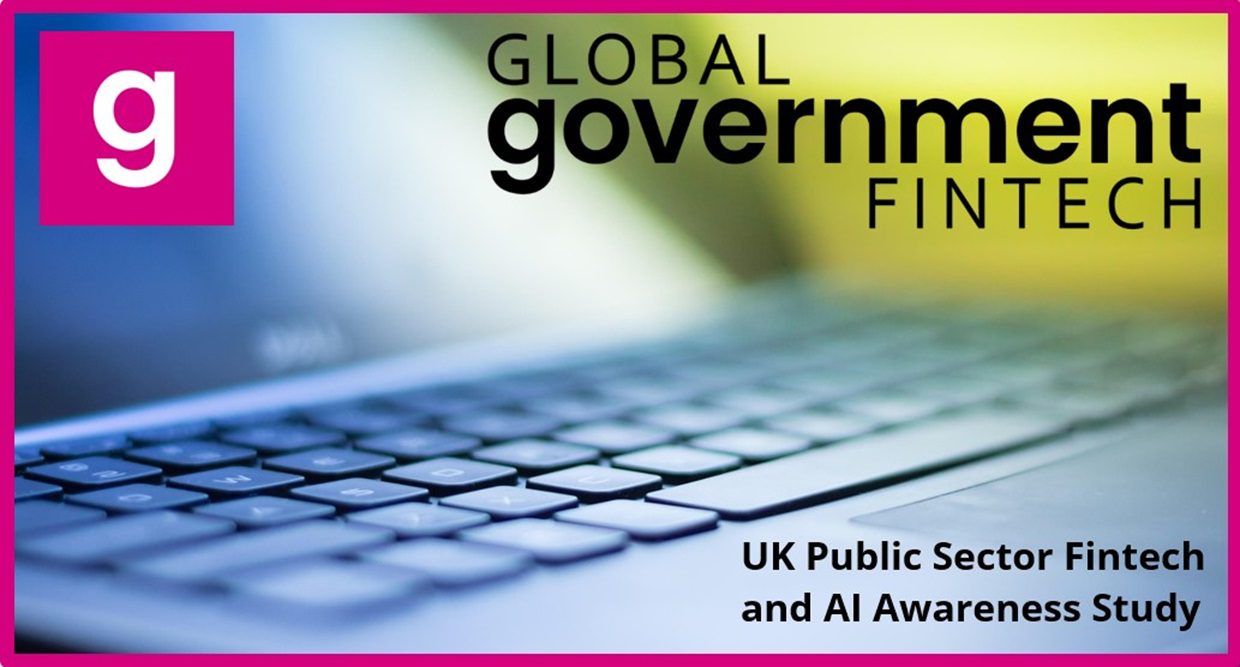
Anti-fraud, digital ID and payments: UK public sector’s fintech priorities revealed –

Anti-fraud, digital ID and payments innovation are the top three the most important fintech-related fields for public sector use, a survey by Global Government Fintech can reveal.
The ‘UK Public Sector Fintech and Artificial Intelligence Awareness Study’ was undertaken by Global Government Fintech between 16 July 2025 and 29 August 2025 to better understand UK public servants’ latest thinking.
The online survey, which received 287 responses, asked a series of questions of UK public servants working across central and local government, health and higher education, in finance, transformation and digital roles.
The results will make timely reading across the public sector and for companies seeking to supply the latest technology to government as interest and awareness in ‘fintech for government’ continues to grow (the survey’s findings on AI are to be covered in a separate article).
From nine possible answers to the question ‘Which of the following fintech-related themes do you consider most important for the UK public sector to explore further?’, anti-fraud, digital ID and payments innovation were the most ticked.
This top three was followed by sustainability and green finance in government; procurement and supplier innovation; use of artificial intelligence (AI) in financial decision-making; financial inclusion and accessibility; application programming interface (API) integration; and, finally, distributed-ledger technology/blockchain.
COMING UP ‘Public Service Data.AI’ – Thursday 18 September 2025 |Free to attend for all UK civil servants responsible for, or interested in, the improved use of data across government | Business Design Centre, Islington, London REGISTER NOW
High-profile topics
The results are published with the political and media profile of all three top topics at a high.
Fraud in the public sector costs billions annually through schemes such as tax evasion, procurement fraud and benefits fraud.
Government initiatives in this area include the Public Sector Fraud Authority and Government Counter Fraud Function – the latter is one of the government’s 14 functions. The ‘Counter Fraud Functional Strategy 2024-2027’ sets out five strategic objectives, including ‘harnessing data and technology more effectively.’
In respect of digital ID, the government is seeking to enable the use of ‘trusted digital identity services’ to enable people to securely prove things about themselves, such as who they are or their age, without needing to present physical documents. This work is led by the Office for Digital Identities and Attributes (OfDIA), which is part of the Department for Science, Innovation and Technology (DSIT).
In respect of payments innovation, the full option people were offered in the survey was ‘Payments innovation (e.g. open banking/ ‘pay by bank’, faster payments, payments efficiency)’ – interlinked areas that show the breadth of the area. The UK’s public sector is blazing a trail, globally, in its use of open banking.
All these topics are all of increasing importance to beyond the UK. For example, member states of the European Union (EU) – which the UK left in 2020 – will be required to offer at least one EU Digital Identity Wallet (known as ‘EUDI Wallet’) to citizens, residents and businesses by the end of 2026.
RELATED ARTICLE Progressing payments innovation in the UK: perspectives on public sector priorities – write-up from a discussion (held on 5 March 2025) featuring public- and private-sector representativesfocused on five themes (anti-fraud, data, financial inclusion, open banking; and payments efficiency)
Preparedness and expertise
Global Government Fintech also asked for respondents’ views on the preparedness of their organisation to ‘adopt and deploy innovative financial technologies (fintech)?’.
Almost half said their organisation was prepared to some extent (4.5 per cent said ‘very well prepared’, 17.8 per cent said ‘moderately prepared’ and 22.6 per cent said ‘slightly prepared’), with 14.6 per cent saying ‘not at all prepared’. More than one third (35.2 per cent) said they did not know while 5.2 per cent said fintech was not applicable to their organisation.
The respondents were also asked to rate their own familiarity with selected fintech/fintech-related concepts (across five degrees of familiarity from ‘not at all familiar’ to ‘expert-level’).
Digital ID received the most ‘expert-level’, ‘very familiar’ or ‘moderately familiar’ answers (153), just ahead of open banking (pay by bank) (130). Anti-fraud technology received 121 ticks across those three familiarity levels. Central bank digital currencies (CBDCs) and blockchain/DLT scored the highest ‘not at all familiar’ answers.
CBDCs are directly relevant to the UK context, with the Bank of England and HM Treasury in the midst of a ‘design phase’ for a potential digital pound during which they aim to establish a ‘clear proposition’ for a CBDC (it would only be introduced with Parliament’s approval and would need primary legislation). Government initiatives involving blockchain/DLT include plans to issue ‘digital gilt instrument’.
*** JOIN GLOBAL GOVERNMENT FINTECH ON LINKEDIN ***
Payment processing engagement
As government interest in fintech grows, so do the possibilities for engaging private-sector expertise.
With this in mind, respondents were also asked in which fintech-related areas they use external suppliers.
‘Payment processing’ was the most-ticked answer (89 per cent), followed by ‘compliance’ (30 per cent), ‘identity and authentication’ (also 30 per cent), ‘fraud detection’ (26 per cent) and ‘data analytics’ (24 per cent).
A relatively new example of the UK government leaning in to fintech is the ‘Open Banking Dynamic Purchasing System (DPS)’ created by the Crown Commercial Service (CCS) – an executive agency of the Cabinet Office – with the ultimate aim of ‘reducing the costs of receiving money into public sector organisations, as well as reducing fraud’. Frameworks (or agreements) overseen by CCS help public- and third-sector buyers to procure goods and services from a list of pre-approved suppliers, with agreed terms and conditions and legal protections. Dynamic purchasing systems (DPS) are one of four types of agreements available through CCS. The Open Banking DPS straddles two of Global Government Fintech’s survey’s two most-ticked fields.
For more information about our research programme, or to become a research partner, please contact
